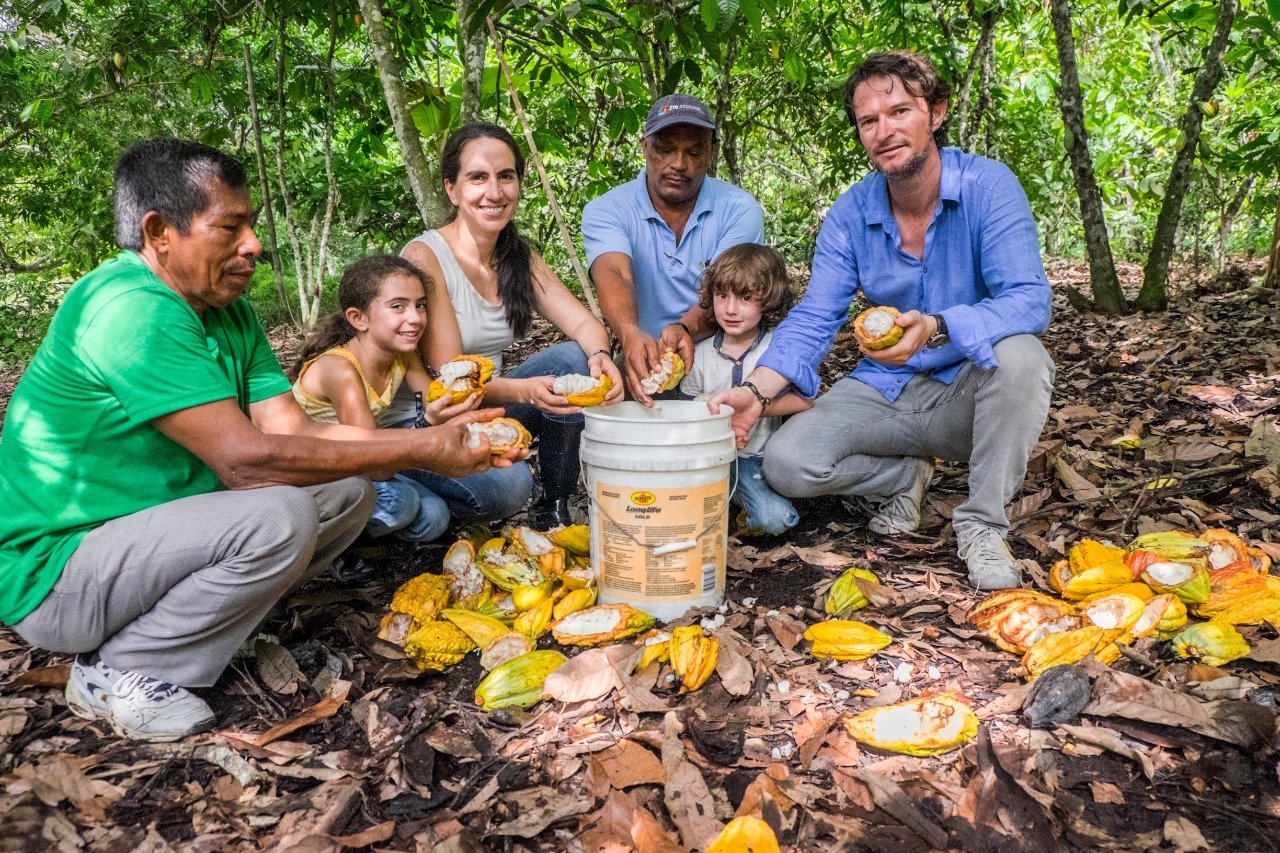How Ecuador’s Paccari Chocolate Is Rewriting The Rules Of Ethical Business
B Corp Paccari is not your average chocolate company. | Paccari
At the Paccari Experience House in Quito, Santiago Peralta is holding a piece of chocolate like it’s a sacred artifact. “Don’t bite it,” he instructs. “Let it melt with the heat of your body.” It’s not a command—it’s a ceremony. And in that moment, the founder of Paccari Chocolate isn’t just talking about cacao. He’s inviting us to taste a revolution.
B Corp Paccari ( which means "nature" or "dawn" in the native Quechua language), is not your average chocolate company. It’s a manifesto, a movement, and a meditation on what it means to do business in a way that respects people and the planet.
From paying cacao farmers triple the market rate, to pioneering compostable packaging, to earning the distinction of being the most awarded chocolate company in the world, Paccari is on a mission to show that ethics and excellence are not mutually exclusive—they are mutually reinforcing.
The Birth of a Purpose
Santiago’s journey didn’t begin in chocolate but in law school. “After seven years of studying law, I realized law and justice had nothing to do with each other,” he says. Disillusioned, he walked away from the courtroom in search of something more soul-nourishing—and found it in cacao. “This is my only life. I want to spend it well. I want no regrets.”
He and his wife Carla founded Paccari with one audacious goal: to build a business where doing good was not a strategy, but a sacred obligation. In an industry where cacao farmers are often paid a pittance—sometimes just $1 per kilo while European chocolatiers sell truffles for €100—Paccari pays triple. “Still not a lot,” Santiago admits, “but it’s the difference between poverty and possibility."
Santiago Peralta | Paccari
A New Kind of Luxury
Paccari is unapologetically premium. But it’s not luxury in the old sense of exclusivity—it’s a new kind of luxury rooted in integrity. “Chocolate is not born from a cow in the Alps,” Santiago quips, recalling the naïveté he witnessed during his years in Germany. “It comes from the hands of farmers, from trees, from nature.”
To honor that truth, Paccari does what few chocolate brands dare: they don’t export raw cacao beans. Instead, they make the chocolate in Ecuador, adding value at the source and keeping jobs in the local economy. “We are from the origin,” Santiago says proudly. “We’re not just exporting ingredients—we’re exporting identity.”
Every bar is crafted with reverence for the land and the people who steward it. The cacao is fermented like fine wine, dried under the equatorial sun, and sorted bean by bean—yes, individually—because, as Santiago says, “Quality is our religion.”
Redefining What’s Fair
Paccari’s disdain for greenwashing is palpable. “Fair Trade? It’s a joke,” Santiago shrugs. “It gives farmers 5% more. We give them 17 times that.” It’s not a flex—it’s a call to conscience.
He doesn’t just preach sustainability—he practices it at every level. The company has been carbon neutral since 2003. They use sunflower lecithin instead of soy (because even kosher chocolate often hides GMO soy). They were the first to introduce biodegradable packaging. And they’re proud to be vegan—not because it’s trendy, but because it’s practical. “Feeding a cow to get meat is a bad business,” Santiago says. “Why not feed the people directly?”
Paccari is decolonizing chocolate - shifting power from the Global North to the Global South, from corporations to communities, from profit to purpose. | Paccari
Chocolate as Activism
In a world where brands often hide behind storytelling without substance, Paccari flips the model. Their story is their substance. “Behind every cheap chocolate bar is a child living in poverty, missing school, missing a future,” Santiago says. His own son, Martin, now tells this truth to his friends. “He’s not an activist. He’s just fair.”
It’s no wonder Harvard and INSEAD have written business cases about Paccari—it’s a living case study in conscious capitalism.
A Taste of the Future
Tasting Paccari’s chocolate is unlike anything else. A 60% bar from the lush, rainy north of Ecuador bursts with notes of vanilla, berry, and banana. A 70% raw bar smells of dry leaves and tastes of wood and earth—closer to the tree, closer to the truth. “This is not candy,” Santiago says. “It’s a journey.”
Even the choice of flavors tells a deeper story. Lemongrass, native to cacao-growing regions across the Global South, is not a gimmick—it’s a declaration. “This is our flavor,” he says. “For the first time in history, we are showing the flavor of the cacao farmer.”
Paccari is decolonizing chocolate - shifting power from the Global North to the Global South, from corporations to communities, from profit to purpose. And the 300+ international awards and accolades show that the world is listening.
The Dawn of a New Model
As we finish our tasting, Santiago leans back and reflects. “We don’t want to just be the best in the world - we want to be the best FOR the world.”
That world is one where value is measured not just in profit, but in purpose. Where packaging doesn’t pollute but composts. Where the soul of a business is not in its slogan, but in its supply chain. Where chocolate is not just a treat, but a tribute—to the land, to the farmers, to the future. Paccari truly is the Patagonia of chocolate.



